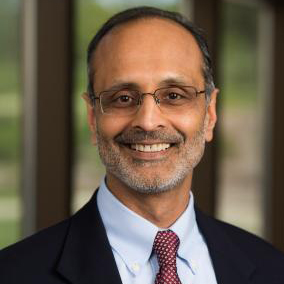Video Chapters
Click on the three lines in the upper left corner to see chapter information or reference the chapter table of contents below to navigate to specific chapters.

Paresh Patel, M.D., Ph.D., Child & Adolescent Psychiatrist, University of Michigan
There are many treatment strategies for the management of mental health concerns in youth. These include:
Successful medication use can help decrease symptoms and enable the youth, as well as their family, to better utilize non-pharmacologic resources. As primary care providers, you may often be asked to:
Medications should be prescribed after careful diagnostic evaluation and consideration of the entire biopsychosocial framework of the child or adolescent’s presentation, as well as the predisposing, precipitating, and perpetuating factors contributing to psychopathology.
Psychiatric diagnoses in youth can vary over time. It is important to:
Look for opportunities to reduce or discontinue medications when:
Remember to:
In almost all cases, psychotherapy and medication together are more effective than medication alone.
Resources Mentioned in the Video
Screening Tools
Other Resources
Riddle M. Pediatric Psychopharmacology for Primary Care. 3rd ed. American Academy of Pediatrics; 2021.
Walkup J, Work group on quality issues. Practice parameter on the use of psychotropic medication in children and adolescents. J Am Acad Child Adolesc Psychiatry. 2009;48(9):961-973. https://doi.org/10.1097/chi.0b013e3181ae0a08
Test your knowledge with an optional 8-question quiz below. (Note: If you wish to receive a certificate of completion for this MC3 Clinical Pearl, you must receive a passing score of 75%.)